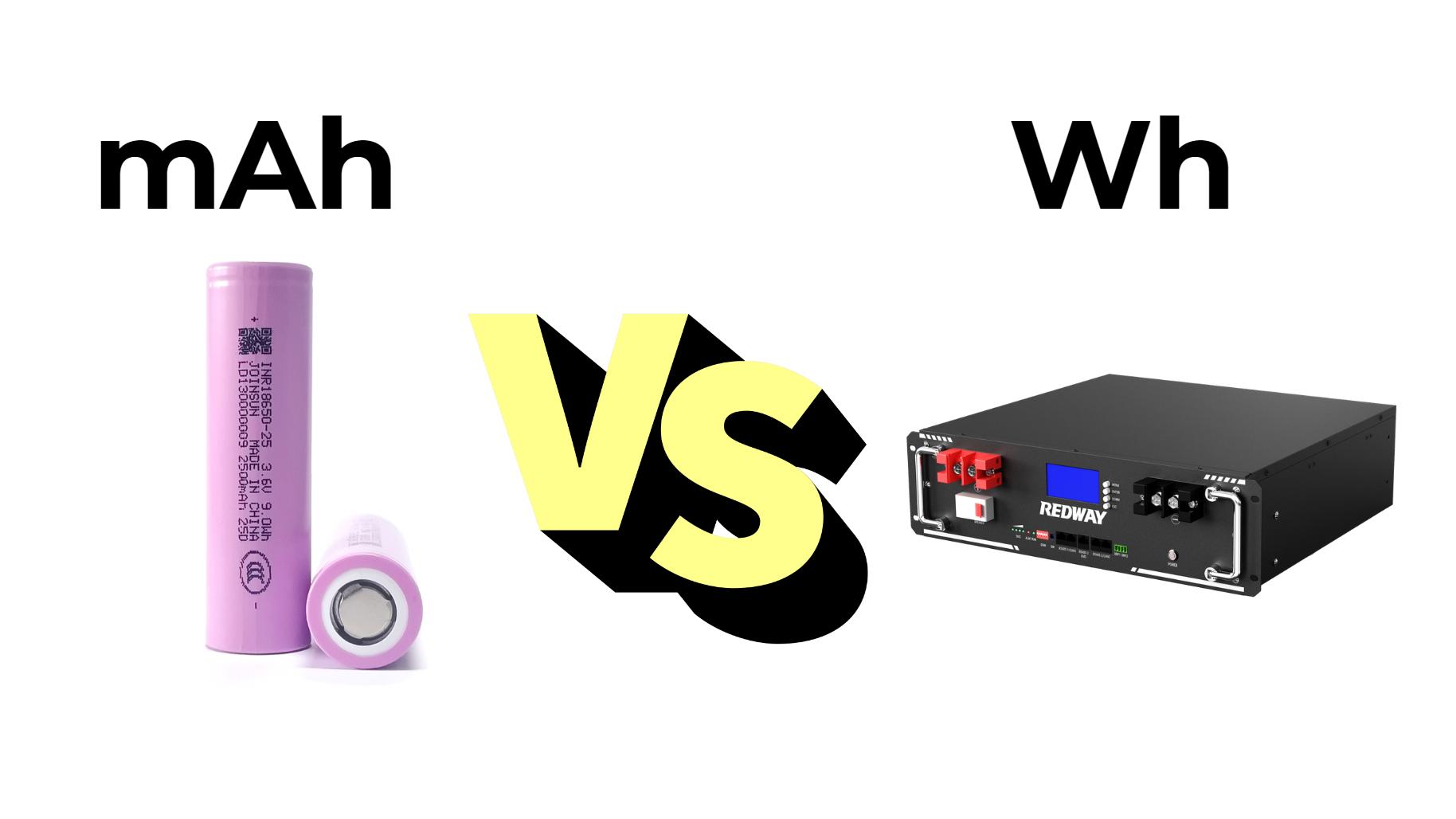Converting milliamp-hours (mAh) to watt-hours (Wh) requires knowing the battery voltage. The formula is:
Wh = (mAh × Voltage) / 1000.
This calculation helps compare battery energy capacities across different voltages, ensuring accurate assessment of battery life and power delivery for devices and energy storage systems.
What Is the Formula to Convert mAh to Wh?
The formula to convert milliamp-hours (mAh) to watt-hours (Wh) is:
Wh=mAh×Voltage (V)1000Wh=1000mAh×Voltage (V)
Wholesale lithium golf cart batteries with 10-year life? Check here.
This conversion multiplies the battery capacity in mAh by the voltage and then divides by 1000 to convert milliamp-hours to amp-hours, resulting in energy measured in watt-hours.
Understanding this formula is essential because mAh alone measures electric charge, while Wh expresses the total energy capacity accounting for voltage differences across batteries.
Want OEM lithium forklift batteries at wholesale prices? Check here.
How Can I Use a Calculator to Convert mAh to Wh?
To use a calculator for mAh to Wh conversion:
-
Identify your battery’s mAh rating (usually on the label).
-
Find the nominal voltage of the battery (also on the label or datasheet).
-
Multiply the mAh value by the voltage.
-
Divide the result by 1000.
For example, a 3000 mAh battery at 3.7V:
3000×3.7/1000=11.1 Wh3000×3.7/1000=11.1 Wh
Many websites and tools provide online calculators where you input mAh and voltage to instantly get Wh values, simplifying comparisons and power planning.
Why Is Voltage Essential in Converting mAh to Wh?
Voltage is critical because mAh measures charge capacity, not energy. Different batteries can have identical mAh values but vastly different voltages, altering total energy output.
Wh reflects energy (voltage × charge), enabling comparison of batteries with different chemistry or configurations. For example, a 2000 mAh battery at 3.7V delivers less energy (7.4 Wh) than the same 2000 mAh at 7.4V (14.8 Wh).
Always use the nominal battery voltage—the voltage rating under normal operating conditions—for accurate conversion.
Which Units Are mAh and Wh in Battery Terms?
-
mAh (milliampere-hours): Measures electric charge the battery can deliver over time—how long it can supply current.
-
Wh (watt-hours): Captures total energy capacity, considering both charge and voltage, indicating how much work a battery can do.
mAh is common for small batteries (smartphones, remotes), while Wh is preferred for larger or varying voltage systems like power tools, batteries for forklifts, or solar energy storage.
How Does Converting mAh to Wh Help in Battery Selection?
Converting mAh to Wh allows users to:
-
Accurately compare batteries across different voltage ratings.
-
Plan energy needs based on real energy capacity, not just charge.
-
Evaluate device runtime and system compatibility more precisely.
-
Inform decisions for energy storage, such as LiFePO4 battery packs from manufacturers like Redway Battery.
This helps ensure you get batteries suitable for your devices’ voltage and power requirements.
When Should I Convert Wh Back to mAh?
Converting Wh to mAh is useful when you know total energy but need the battery capacity in charge units compatible with specific devices. The formula is:
mAh=Wh×1000Voltage (V)mAh=Voltage (V)Wh×1000
For example, a 50 Wh battery at 5V:
50×10005=10,000 mAh550×1000=10,000 mAh
This is helpful in battery design, replacement, and comparing battery packs with different voltages.
Can This Conversion Apply to All Battery Types?
Yes, the mAh to Wh formula applies universally but requires the nominal voltage appropriate for the battery’s chemistry and design. For instance, lithium-ion batteries typically run at 3.6–3.7V nominal, lead-acid at about 12V nominal.
Always verify voltage specific to your battery model to avoid errors. Manufacturers like Redway Battery customize lithium battery packs with specified voltages, making accurate conversions vital for efficiency and safety.
How Can I Calculate Battery Energy Using mAh and Voltage? (Example Table)
| mAh (milliamp-hour) | Voltage (V) | Calculated Wh (Watt-hour) | Typical Use Case |
|---|---|---|---|
| 1000 | 3.7 | 3.7 | Small lithium-ion batteries |
| 3000 | 3.7 | 11.1 | Smartphone battery |
| 5000 | 12 | 60 | Lead-acid for power tools |
| 20000 | 36 | 720 | EV or forklift lithium packs |
This table helps visualize how voltage substantially affects total energy despite the same mAh value.
Redway Expert Views
“Accurate battery capacity calculations are fundamental for designing reliable energy systems. At Redway Battery, we emphasize precise conversion between mAh and Wh to optimize our LiFePO4 battery pack designs for forklifts and golf carts. Understanding voltage interplay with capacity enables us to deliver tailored, high-performance batteries that provide dependable power and safety across industries.”
— Redway Battery Engineering Team
What Are Key Takeaways and Actionable Advice on mAh to Wh Conversion?
-
Always obtain the battery’s nominal voltage before converting mAh to Wh.
-
Use the formula: Wh = (mAh × Voltage) / 1000 to determine energy capacity.
-
Leverage online calculators for quick and accurate conversions.
-
Understand Wh represents true energy, aiding in better battery comparisons and device compatibility.
-
For industrial applications, partner with OEMs like Redway Battery ensuring precise battery capacity calculations and custom solutions for optimal performance.
These practices ensure reliable energy management and informed battery selection.
Frequently Asked Questions (FAQs)
What is the main difference between mAh and Wh?
mAh measures electrical charge capacity; Wh measures total energy considering voltage.
Can I convert mAh to Wh without knowing the voltage?
No, voltage is essential; without it, conversion is inaccurate.
How do I find the voltage for my battery?
Check the battery label, datasheet, or manufacturer‘s specs for nominal voltage.
Why do battery packs with the same mAh have different runtimes?
Voltage differences affect the actual energy (Wh), causing runtime variations.
Does Redway Battery provide batteries with standardized voltage ratings?
Yes, Redway Battery customizes LiFePO4 packs with specific voltages to meet diverse application needs.






